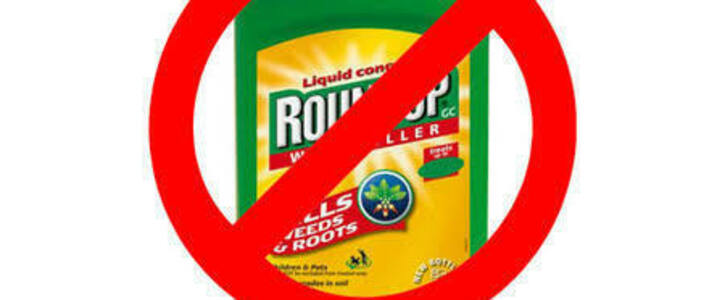To: Nambucca Valley Local Council
Ban Glyphosate Use in Nambucca Shire

Ban the use of Glyphosate in the Nambucca Valley Shire for government, commercial & private use.
Why is this important?
Glyphosate is currently broadly used across the Nambucca Shire by the council to manage weeds in a number of public spaces including playing fields and roadsides. Products containing Glyphosate are available for the public and commercial use within the Nambucca shire. These are broadly used in residential areas, non-organic farming and on golf courses. The use of these chemicals has been shown to be a major health and be directly linked to cancer and other diseases.
The California state and the World Health Organization’s International Agency for Research on Cancer (IARC) ruled glyphosate a carcinogen. The IARC said that along with other Monsanto chemicals Roundup could cause Parkinson’s disease, Alzheimer’s disease, autism, and cancer. Glyphosate is the key ingredient in Bayer/Monsanto’s signature herbicide Roundup.
Globally, glyphosate use has risen almost 15-fold since so-called “Roundup Ready,” genetically engineered glyphosate-tolerant crops were introduced in 1996. The mass-spraying of glyphosate has led to the explosion of resistant weeds, which have evolved to survive despite being sprayed. Weeds resistant to the herbicide are now commonly found on local farmers’ fields.
There have been many court cases in the USA are ruling against companies such as Monsanto and Bayer (leading companies in glyphosate products) saying that the glyphosate based herbicides sold by these companies caused cancer in the plaintiffs. Germany’s Bayer is now facing 42,700 U.S. plaintiffs blaming its glyphosate-based weedkillers for their cancer.
Monsanto was recently ordered to pay $289 million in damages after a jury found the pesticide giant liable for causing a school groundskeeper’s cancer.
Due to this Bayer is considering stopping private users. Companies such as Kellogg’s have committed to reducing the use of these harmful pesticides in food production as it was found within their products.
Many countries, cities and local council areas such as Germany, France, San Fransisco and two Sydney LGA’s have banned the use of Glyphosate due to it’s links to cancer and environment damages. Studies have shown that glyphosate was found in most children’s cereals.
Children exposed to potentially carcinogenic pesticides from use in homes, hospitals, schools, other buildings, lawns and gardens, through food and contaminated drinking water, from agricultural application drift, overspray, or off-gassing, and from carry-home exposure of parents occupationally exposed to pesticides. Parental exposure during the child's gestation or even preconception may also be important. Malignancies linked to pesticides in case reports or case-control studies include leukemia, neuroblastoma, Wilms' tumor, soft-tissue sarcoma, Ewing's sarcoma, non-Hodgkin's lymphoma, and cancers of the brain, colorectum, and testes.
The evidence that these chemicals are harmful is substantial. It is irresponsible that a council overlook these risks to the public’s health and the contamination of our waterways and environment by these chemicals. We ask that the council be proactive and take action to be a leader in moving away from the use of these chemicals for all our families and our children.
The California state and the World Health Organization’s International Agency for Research on Cancer (IARC) ruled glyphosate a carcinogen. The IARC said that along with other Monsanto chemicals Roundup could cause Parkinson’s disease, Alzheimer’s disease, autism, and cancer. Glyphosate is the key ingredient in Bayer/Monsanto’s signature herbicide Roundup.
Globally, glyphosate use has risen almost 15-fold since so-called “Roundup Ready,” genetically engineered glyphosate-tolerant crops were introduced in 1996. The mass-spraying of glyphosate has led to the explosion of resistant weeds, which have evolved to survive despite being sprayed. Weeds resistant to the herbicide are now commonly found on local farmers’ fields.
There have been many court cases in the USA are ruling against companies such as Monsanto and Bayer (leading companies in glyphosate products) saying that the glyphosate based herbicides sold by these companies caused cancer in the plaintiffs. Germany’s Bayer is now facing 42,700 U.S. plaintiffs blaming its glyphosate-based weedkillers for their cancer.
Monsanto was recently ordered to pay $289 million in damages after a jury found the pesticide giant liable for causing a school groundskeeper’s cancer.
Due to this Bayer is considering stopping private users. Companies such as Kellogg’s have committed to reducing the use of these harmful pesticides in food production as it was found within their products.
Many countries, cities and local council areas such as Germany, France, San Fransisco and two Sydney LGA’s have banned the use of Glyphosate due to it’s links to cancer and environment damages. Studies have shown that glyphosate was found in most children’s cereals.
Children exposed to potentially carcinogenic pesticides from use in homes, hospitals, schools, other buildings, lawns and gardens, through food and contaminated drinking water, from agricultural application drift, overspray, or off-gassing, and from carry-home exposure of parents occupationally exposed to pesticides. Parental exposure during the child's gestation or even preconception may also be important. Malignancies linked to pesticides in case reports or case-control studies include leukemia, neuroblastoma, Wilms' tumor, soft-tissue sarcoma, Ewing's sarcoma, non-Hodgkin's lymphoma, and cancers of the brain, colorectum, and testes.
The evidence that these chemicals are harmful is substantial. It is irresponsible that a council overlook these risks to the public’s health and the contamination of our waterways and environment by these chemicals. We ask that the council be proactive and take action to be a leader in moving away from the use of these chemicals for all our families and our children.

